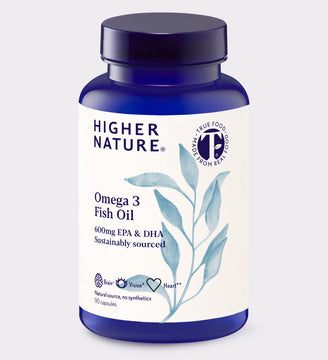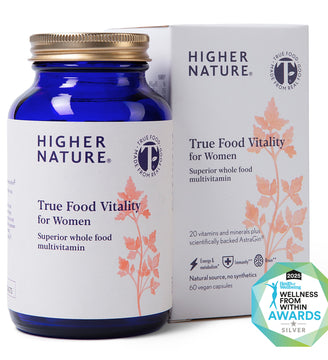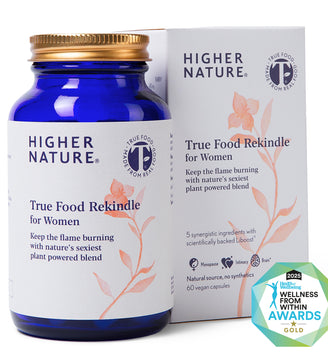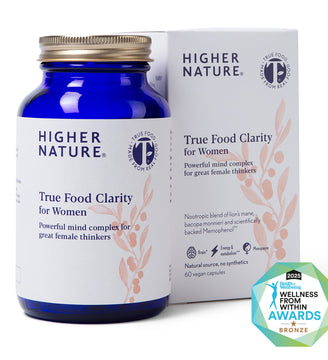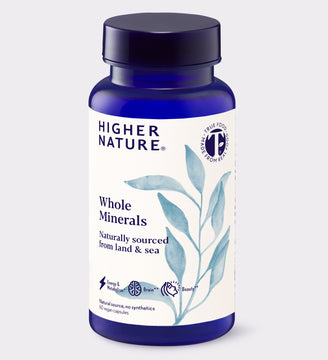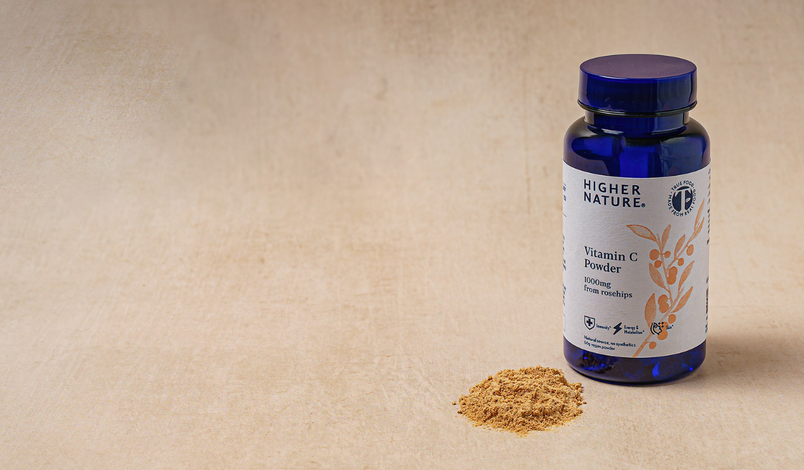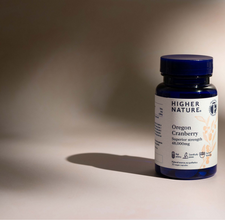
Are you ageing well?
Higher Nature Nutrition Team
Ageing is a hot topic, with 1960’s baby boomers predicted to outnumber children aged under five by 2050. But whilst the population is ageing, healthy life expectancy in the UK is only 64 years for women and 63 years for men.
On the plus side, there are many ways you can contribute to healthy ageing, from dietary to lifestyle habits, and you can start at any point in life – the earlier the better.
Watch your weight
With the highest level of obesity in Western Europe, more than 60% of UK adults are classed as overweight or obese - three times as many as in 1980. Over-consumption of sugary foods, refined carbs and high-fat meals, combined with large portion sizes and a sedentary lifestyle are all contributory factors.
Unsurprisingly, there has been a huge increase in the prevalence of Type 2 diabetes which is estimated to rise to five million by 2025. Healthy eating and regular physical exercise can not only prevent the development of the condition, but research now suggests Type 2 diabetes, traditionally classed as a life-long condition, may be reversed through calorie reduction, regular exercise and glucose management. Balancing blood glucose lies at the heart of both preventing diabetes and supporting optimum energy levels. The key message is to limit sugar, sugary foods and refined carbohydrates, and eat a diet based on wholegrains, good quality protein such as fish, poultry, eggs and beans with plenty of fruit and vegetables to provide those all-important antioxidants. Oily fish, nuts, seeds and their oils will provide essential omega 3 and 6 fats.
Build bone
Investing in bone health at an early stage is vital. A poor diet and lack of exercise during childhood and the teenage years may sow the seeds for brittle bones later in life. Unfortunately, many youngsters strive for an unhealthy body image at the very time they should be building bone mass. Peak bone density is achieved around the age of 30 years, after which time there is a gradual decline, with some women losing up to 20% of their bone mass in the five to seven years after the menopause.
Calcium-rich foods include dairy products, the mashed bones of tinned, oily fish, green leafy vegetables such as curly kale and spring greens, dried figs, almonds and tahini. Other important minerals for bone building include magnesium, boron, silicon, manganese and zinc. Vitamin D not only facilitates calcium absorption but has been found to have an array of positive health benefits including enhanced immunity and works well with vitamin K2, which directs calcium to the bones. A recent study even suggested that heart failure among the elderly was strongly associated with Vitamin D deficiency.
Stand tall!
Maintaining a healthy weight and taking regular exercise is not only important for bone and joint health, but for all-round healthy aging. Standing desks are becoming increasingly popular in offices as standing rather than sitting down activates the muscles in the legs, back and feet, promoting more weight bearing as well as helping balance. More than 90% of hip fractures result from falls which are largely due to poor balance in older people.
Supporting the joints with nutrients such as glucosamine, MSM (a sulphur compound) and collagen naturally found in cartilage, ligaments, tendons and bones, may help to keep joints flexible and comfortable as we age.
Stress less
Chronic stress takes its toll on immunity, the nervous system, digestion, heart function, skin and sleep and is considered a major factor in premature ageing and even in conditions such as Alzheimer’s. Keep stress at bay with calming nutrients including theanine from green tea, B vitamins and magnesium as well as herbs such as rhodiola, which is used for the symptoms of stress such as anxiety, fatigue and exhaustion.
Finally, socialising, feeling part of your community, learning a new skill and getting regular restorative sleep are strongly associated with health and wellbeing throughout life and are all within our control.
So whatever your age, there are many positive steps you can take to help live a long and healthy life!


